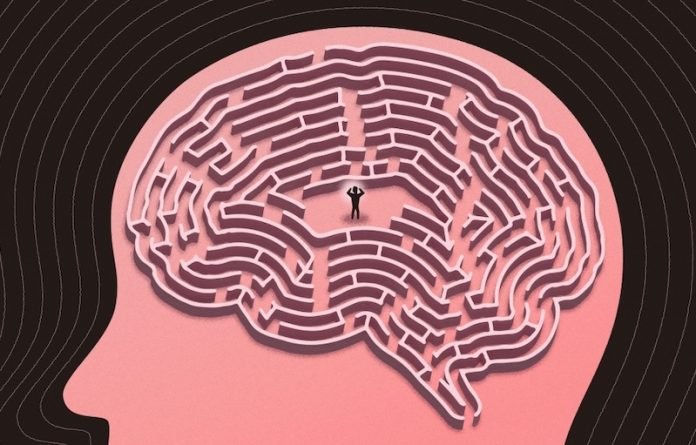
Functional neurologic disorder is a condition that interferes with the ability of an individual’s nervous system to send or accept the correct signals.
Symptoms vary according to the type of FND a patient may have and can range from weakness and abnormal movement patterns to speech difficulties, changes in sensation and more.
Neurologist Chauncey Spears, M.D., — a specialist in diagnosing the condition — leads the University of Michigan Health Functional Neurologic Treatment Program.
The program includes a team of physical therapists, occupational therapists and speech-language pathologists who specialize in providing targeted treatment for patients diagnosed with FND, with a focus on a subtype of the condition known as functional movement disorder..
Here, Spears shares important information about both FND and functional movement disorder.
What is FND?
Spears: Functional neurologic disorder can be described as ‘a malfunction of an undamaged brain.’
It’s actually an umbrella term for several conditions that cause physical symptoms related to how the nervous system functions.
These symptoms aren’t tied to a neurological disease where a neurologist can point to a specific area or structure of the brain that’s damaged, such as stroke or Parkinson’s Disease.
This makes the diagnosis challenging.
At University of Michigan Health, we’ve created the Functional Neurologic Treatment Program for patients with one of the more common subtypes of FND: functional movement disorder.
To qualify for the program a person has to be diagnosed and referred by a University of Michigan Health neurologist.
They also have to be experiencing persistent functional movement symptoms and have a basic understanding and acceptance of their FMD diagnosis.
How common is FND?
Spears: Overall, approximately 12 out of 100,000 patients are diagnosed with FND.
This population accounts for about 10 to 15% of patients treated for neurological concerns. We see more adolescents and women with the condition, but anyone — young or old, male or female — can be diagnosed with it.
What are the symptoms of functional movement disorder and how is it diagnosed?
Spears: An individual with functional movement disorder might present with uncontrolled or involuntary movements such as tremor, parkinsonism (slowed movements), dystonia (abnormal twisting or posturing) or difficulty walking.
Sometimes this may happen after experiencing a stressful event or emotional or physical trauma, but sometimes, the symptoms may come out of the blue.
Many patients I’ve seen with FMD have undergone a lot of testing that failed to give them an answer. That’s because FMD can’t be seen on a CT scan or an MRI.
An FMD diagnosis is normally made by a neurologist after a careful review of symptomsand an examination that shows very specific, positive FMD findings.
How do you treat functional movement disorder?
Spears: Our program features a multidisciplinary team of physical and occupational therapists and speech-language pathologists.
A patient may also meet with a psychologist or other mental health professional, if necessary, for any emotional or physical stressors that might further perpetuate their condition.
Our team assesses each patient’s level of function, works with them to set specific goals and recommends an individualized treatment protocol.
We offer different treatment methods according to the patient’s needs, with therapies scheduled five days a week for a two-week period or two half-days per week over a four-week period.
In treatment, we sometimes use the term ‘reprogramming’ where patients ‘unlearn’ a certain behavior that might be responsible for their symptoms.
We teach them techniques to keep out those unwanted behaviors and help them build resilience.
Some patients do really well by reducing their stress with relaxation and mindful breathing techniques. Others do well relearning automatic movements.
Can either FND or functional movement disorder be cured?
Spears: The right therapeutic approach can have a really remarkable benefit. We’ve seen patients come in using a wheelchair and walk out on their own.
They often regain a great deal of functional capacity.
Successful treatment depends not only on an experienced team, but also on the patient’s ability to understand and accept the functional movement disorder diagnosis as well as their commitment to treatment.
Understanding that symptoms are real and improvement is possible are critical to a patient’s recovery.
Written by Jane Racey Gleeson.
If you care about dementia, please read studies about low choline intake linked to higher dementia risk, and how eating nuts can affect your cognitive ability.
For more information about brain health, please see recent studies that blueberry supplements may prevent cognitive decline, and results showing higher magnesium intake could help benefit brain health.
Follow us on Twitter for more articles about this topic.



